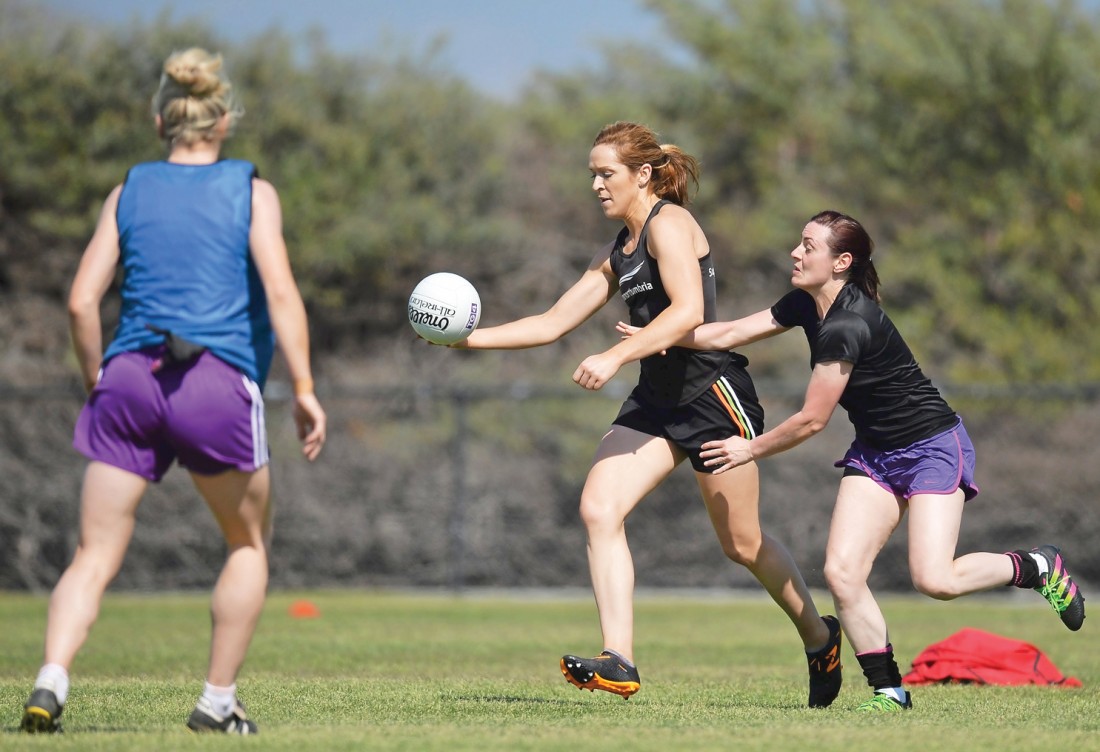ONE of the biggest problems in our games pre-Covid was staring us straight in the face and I really feel the pandemic has accidently made the GAA sit up and look at changing this – that is the fixture calendar.
For example, the pinnacle game of a club player’s career is being squeezed in during the worse weather of the year.
The congestion between u-20, Sigerson Cup and MacRory Cup and the lack of regular competitive fixtures for club players is a massive concern – as is the gap between championship games for intercounty players.
A major, major concern for me is the age group between the ages of 18-21 and the real contentious issue of player burnout.
On Monday Night Football on Sky Sports a few years back, Chris Coleman, the former Wales national team soccer manager, felt that the most concerning years for a professional footballer lay between the ages of 16 and 21.
I found that very interesting as it came from a professional sport where players’ physical and mental well-being is being consistently monitored, and many of us would feel those years are pivotal in our own games.
For example, you used to have an U-20 League in January. Consider this madness for a split second. Take Joe, the exceptional 19-year-old who could be training with his university or school, training with his county u-20 squad and has now become an important figure for his county senior team, and all those competitions start in January.
This is only one small example and not an unrealistic one, and it is certainly not uncommon in many counties across our province for this situation to occur.
At u-20 level in professional sport the squad is seen as a development stage towards senior level, but in GAA it becomes solely about winning over development whether we like it or not.
I know a few years back, one county u-21 football team trained approximately 90 times and played two competitive games, losing both.
Now consider this, that’s approximately 16 or 17 weeks’ training, three times a week to play in two competitive games. What other sport would you hear this happen in?
Therein lies a major problem, a ridiculously imbalanced proportion of training to games and at an age level where burn-out and player welfare is probably at its highest risk.
Too great an emphasis is placed on winning over development and we need to change the record.
This is only a thought, but why not banish u-20 competitions and play them as development games on the same day as National League fixtures?
If the National League could start in the second or third weekend in February next year, all being well, and be played off over seven consecutive weekends, you will have every squad in Ireland playing multiple games allowing for progress and development.
Exceptional u-20 players can move into senior matchday panels and the emphasis is on development and bridging the gap to senior level.
It also won’t have an adverse effect on the Sigerson Cup competition which needs respect too and hopefully will be back up and running for 2022.
We have a serious issue in our games, particularly with the above mentioned age-group, but I think we have a serious issue across the board with our coaching and training of teams. From underage to senior, the volume of training has reached absurd levels.
Mike McGurn, the well-renowned strength and conditioning coach, said this week the volume of training going on in the GAA was greater than what the All-Blacks were doing, and I tend to agree.
Covid has shortened pre-season for a lot of counties and clubs and it completely makes sense.
Ok, having no competitive games to taper your training around presents a real challenge for a coach, as many will fear losing the benefits of early conditioning work and challenge games don’t really carry the same intensity or edge.
However, we need to be careful. Do these young lads need as much training?
Unfortunately there is a culture which still exists in our games that during training we should drain the life out of players for 90-plus minutes a session, three times a week.
Should this culture exist at all? I personally feel at u-20 and u-17 level, and also at senior level, it should not exist.
Do we actually need to train these types of lads for longer than an hour? Some coaches may argue for and against, I’ve always insisted there are no experts in the coaching field but just differing coaching opinions.
Recently some interesting statistical information has appeared in our own games and others that could help and guide us as coaches to how we plan and tailor our training in the future.
If we consider that the ball is in play for approximately 50 percent of a game, then in a normal 60-minute club game the stats will read approximately 30 minutes in play over the two halves of football.
If we include a 15 or 20-minute dynamic warm-up in there and a 10-minute cool down, in my opinion there is not much need to train a lot longer than an hour.
This is on the condition that if the volume is turned down, the intensity levels must be extremely high to replicate the game environment.
Receive quality journalism wherever you are, on any device. Keep up to date from the comfort of your own home with a digital subscription.
Any time | Any place | Anywhere












